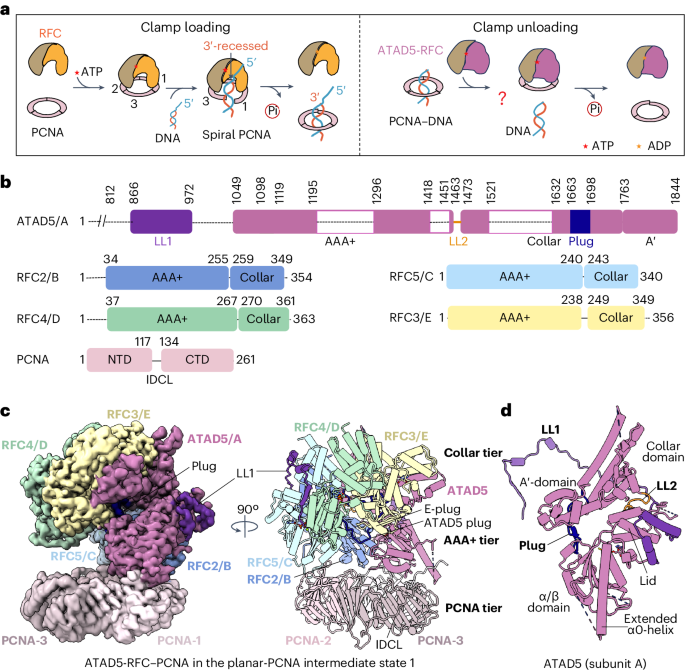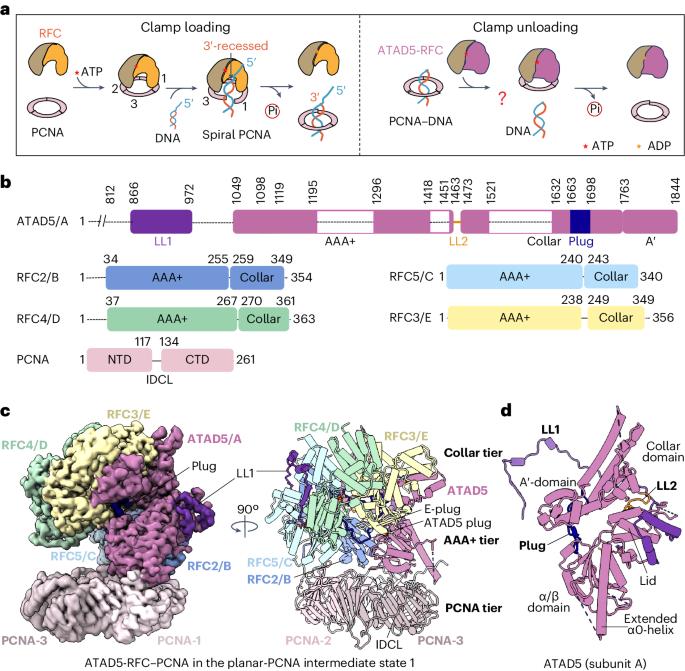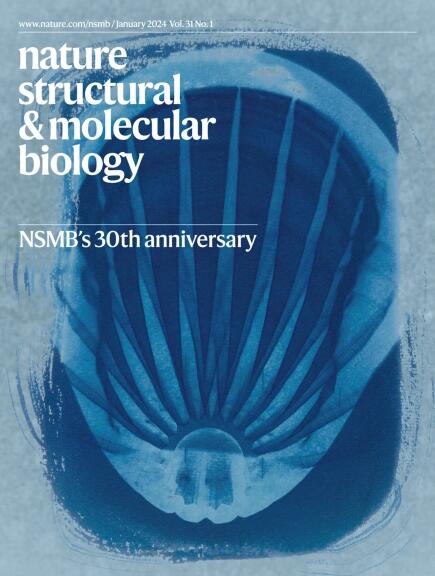The human ATAD5 has evolved unique structural elements to function exclusively as a PCNA unloader
IF 12.5
1区 生物学
Q1 BIOCHEMISTRY & MOLECULAR BIOLOGY
引用次数: 0
Abstract
Humans have three different proliferating cell nuclear antigen (PCNA) clamp-loading complexes: RFC and CTF18-RFC load PCNA onto DNA, but ATAD5-RFC can only unload PCNA from DNA. The underlying structural basis of ATAD5-RFC unloading is unknown. We show here that ATAD5 has two unique locking loops that appear to tie the complex into a rigid structure, and together with a domain that plugs the DNA-binding chamber, prevent conformation changes required for DNA binding, likely explaining why ATAD5-RFC is exclusively a PCNA unloader. These features are conserved in the yeast PCNA unloader Elg1-RFC. We observe intermediates in which PCNA bound to ATAD5-RFC exists as a closed planar ring, a cracked spiral or a gapped spiral. Surprisingly, ATAD5-RFC can open a PCNA gap between PCNA protomers 2 and 3, different from the PCNA protomers 1 and 3 gap observed in all previously characterized clamp loaders. Cryo-EM structures of the human clamp unloader ATAD5-RFC bound to the sliding clamp PCNA reveal two unique locking loops and one chamber plug that prevent DNA from entering the ATAD5-RFC and explain why ATAD5-RFC is exclusively a PCNA unloader.


人类 ATAD5 已进化出独特的结构元素,专门作为 PCNA 卸载器发挥作用
人类有三种不同的增殖细胞核抗原(PCNA)钳夹加载复合物:RFC 和 CTF18-RFC 将 PCNA 加载到 DNA 上,但 ATAD5-RFC 只能将 PCNA 从 DNA 上卸载下来。ATAD5-RFC 卸载的基本结构基础尚不清楚。我们在这里发现,ATAD5 有两个独特的锁定环,它们似乎将复合物束缚在一个刚性结构中,并与一个堵塞 DNA 结合室的结构域一起,阻止了 DNA 结合所需的构象变化,这很可能解释了为什么 ATAD5-RFC 仅仅是 PCNA 卸载器。这些特征在酵母 PCNA 卸载器 Elg1-RFC 中是保守的。我们观察到,与 ATAD5-RFC 结合的 PCNA 存在封闭的平面环、开裂的螺旋或间隙的螺旋等中间产物。令人惊讶的是,ATAD5-RFC 能在 PCNA 原体 2 和 3 之间打开 PCNA 间隙,这与之前所有钳夹装载器中观察到的 PCNA 原体 1 和 3 间隙不同。
本文章由计算机程序翻译,如有差异,请以英文原文为准。
求助全文
约1分钟内获得全文
求助全文
来源期刊

Nature Structural & Molecular Biology
BIOCHEMISTRY & MOLECULAR BIOLOGY-BIOPHYSICS
CiteScore
22.00
自引率
1.80%
发文量
160
审稿时长
3-8 weeks
期刊介绍:
Nature Structural & Molecular Biology is a comprehensive platform that combines structural and molecular research. Our journal focuses on exploring the functional and mechanistic aspects of biological processes, emphasizing how molecular components collaborate to achieve a particular function. While structural data can shed light on these insights, our publication does not require them as a prerequisite.
 求助内容:
求助内容: 应助结果提醒方式:
应助结果提醒方式:


